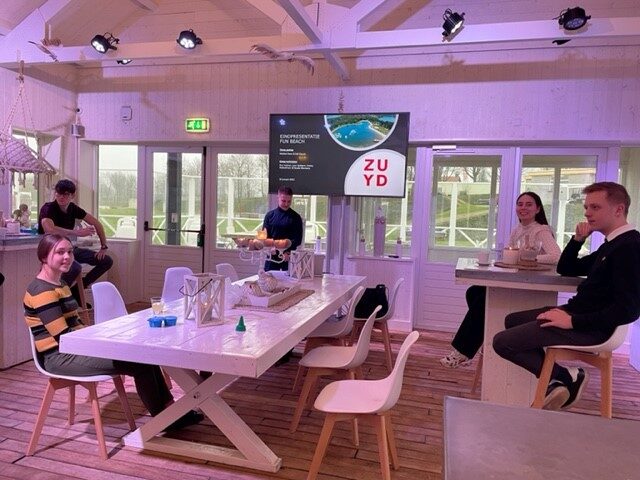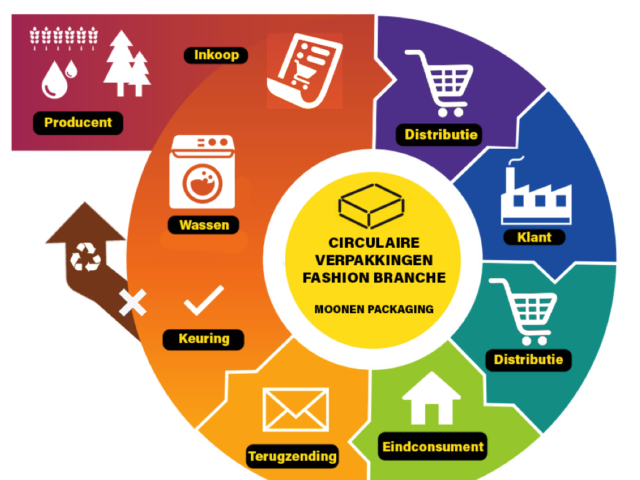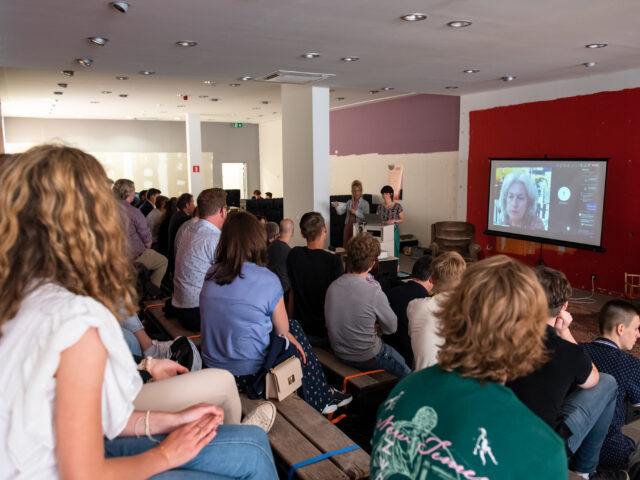The Dutch company Parbopack, which specialises in customised displays, boxes and packaging, set some final-year students at Zuyd University of Applied Sciences thinking. What are the options for making waste processing more sustainable? A Wanderful issue around the company’s residual flows.
Keanu van Heugten, Cassidy Oosting, Vera Timmermans, Loek Wehrens – final-year students in Commercial Economics at Zuyd University – spent 10 weeks getting to grips with a sustainability issue at Parbopack. The company from Ittervoort in the Netherlands has specialised in customised displays, boxes and packaging since 1988 and is driven by innovation and craftsmanship. A company with potential. Not least in terms of sustainability. The custom-made punches in particular were scrutinised. These punches are used, sometimes just once, for customers and then disposed of as ‘residual waste’ (wood waste with iron). “What options are there for Parbopack to make the processing of waste more sustainable and thereby reduce the associated costs?
After thorough desk research and qualitative research and consulting various experts, including sustainability expert Renske Cox, the group rethought the ‘problem’ into a new approach to the production process with a corresponding new communication approach: making their sustainability strategy visible.
“We advise Parbopack to invest in a laser cutter with which the cardboard can be cut and printed. This is because the cost of disposing of wood waste is around ten thousand euros annually and the investment of a laser cutter is around fifteen thousand euros. It is therefore possible to make a rough estimate that the investment will pay for itself within a year and a half,” the students say.
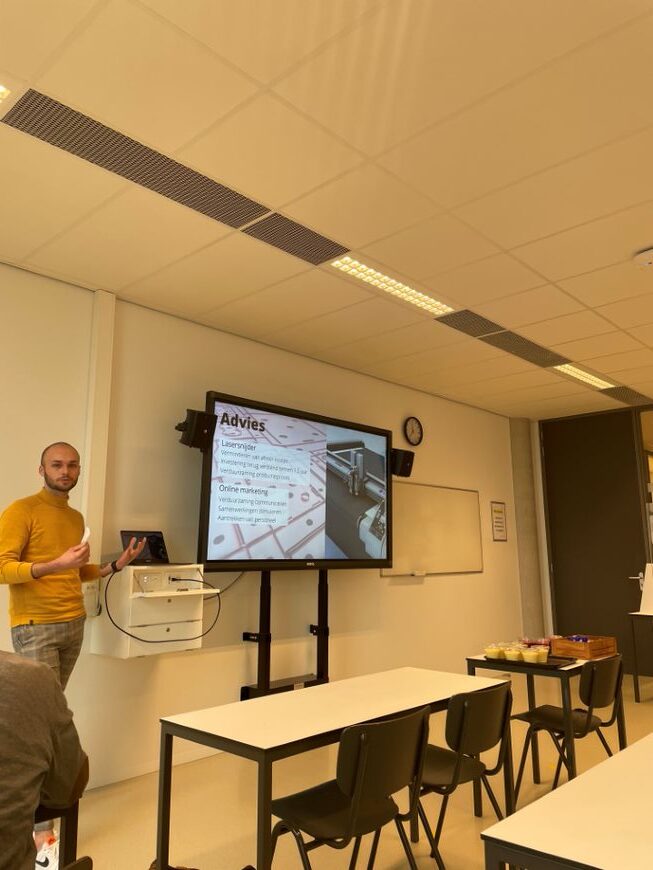
“This makes the production process a lot more sustainable because the wood and iron of the cutting blades is no longer needed. The laser cutter consumes electricity and since the company has opted for solar panels, this too is supplied by renewable energy,” they continue. They want to see this sustainability communicated through online marketing. “In this way, it will become more attractive for customers to work with Parbopack and it will also be possible to attract other/more personnel. After all, working for a sustainable company is becoming more and more important for personnel.”
“This makes the production process a lot more sustainable because the wood and iron of the cutting blades is no longer needed. The laser cutter consumes electricity and since the company has opted for solar panels, this too is supplied by renewable energy,” they continue. They want to see this sustainability communicated through online marketing. “In this way, it will become more attractive for customers to work with Parbopack and it will also be possible to attract other/more personnel. After all, working for a sustainable company is becoming more and more important for personnel.”
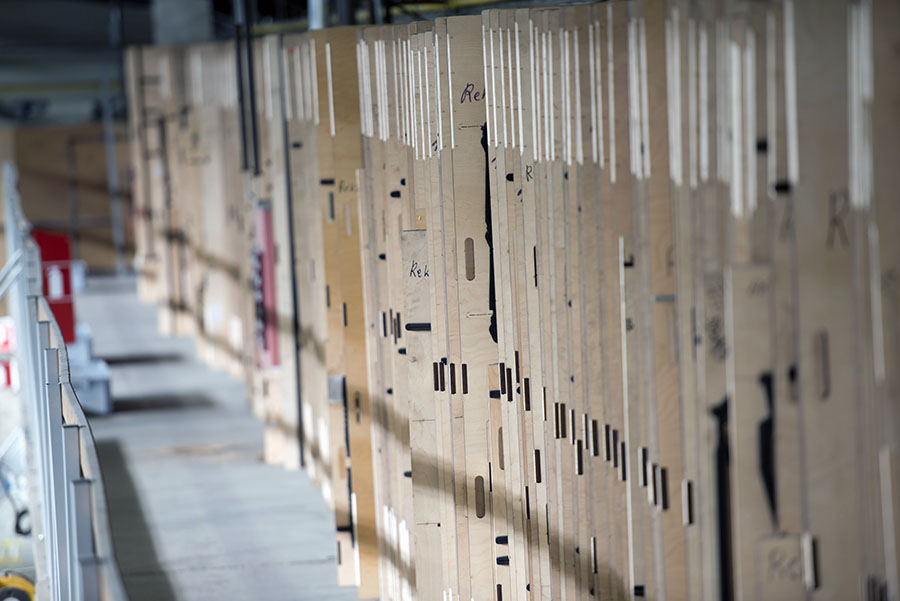
At the beginning of February, numerous final presentations of various company assignments took place at Zuyd University, in which Keanu van Heugten, Cassidy Oosting, Vera Timmermans, Loek Wehrens impressed the jury. The group of students had developed both the most useful and innovative recommendations with implementation plan and the most thorough additional brainstorming. They were awarded the Zuyd Innovative Entrepreneurship Lab (ZIEL) prize.
Why did Team Parbopack win? “Through their new insights and research, concretely with new companies as possible partners, the seed has been planted for Marc Dijkstra, manager at Parbopack, to start working on this in concrete terms. As a side track to the research of the students, this has given a concrete new direction to smart partnerships in the deployment of new technologies. This combined with the new communication strategy foresees a growth in the coming years that Parbopack looks forward to with great promise…”.
The students see the learning process around circular entrepreneurship as follows: “We learned a lot about biomass. And from Parbopack than which wood they use. We started to investigate this in relation to biomass and this showed us that biomass is not such a sustainable way of processing their waste at all. By reading certain reports about circular economy, we have also grown in this and gained a lot of new knowledge about it.”
For Marc Dijkstra, manager of Parbopack, this cooperation was equally instructive. “It is special to experience how these students approach the question, and when faced with setbacks immediately look for other possibilities,” he concludes.
